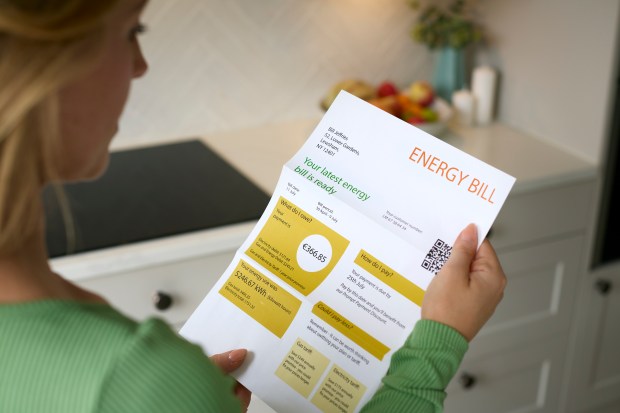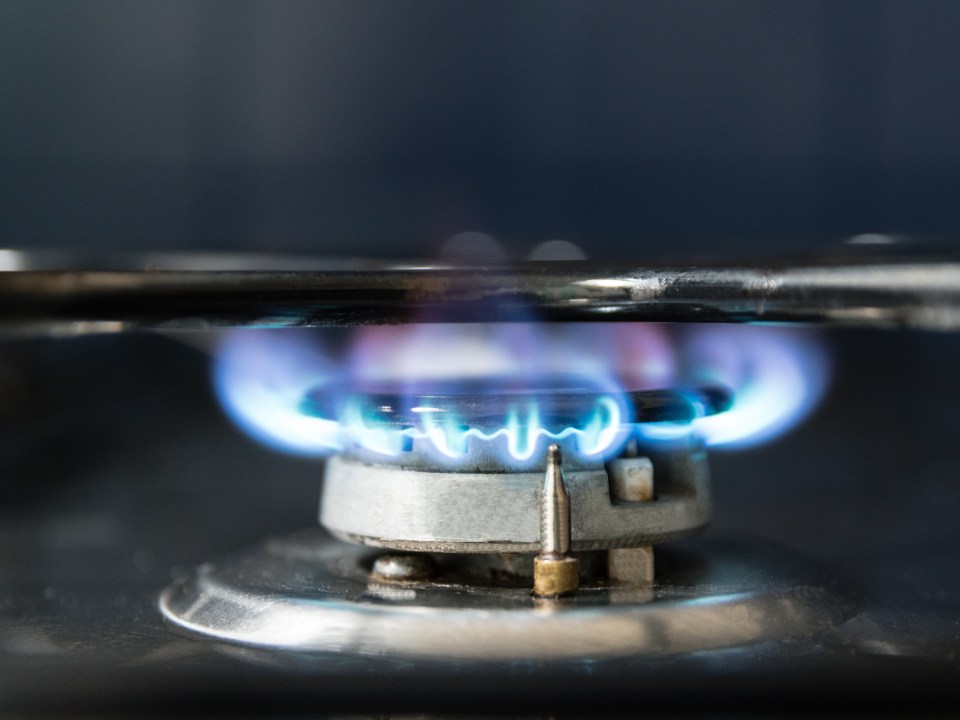MILLIONS of households will see their energy bills rise by around one per cent in October, with Ofgem expected to confirm its latest price cap tomorrow.
Over 22million households on standard variable tariffs remain directly impacted by the price cap which changes every three months.
It currently sets annual energy costs at around £1,720.
But, analysts at Cornwall Insight predict this will rise by £17 to £1,737 from October 1.
However, many households still pay more than Ofgem‘s headline figure.
This is because the price cap doesn’t cap total bills but limits the maximum cost per kilowatt-hour (kWh) of gas and electricity, along with daily standing charges.
Ofgem will confirm the exact increase tomorrow (August 27).
However, Uswitch says 22 million households on standard tariffs could save hundreds by switching to a fixed deal now.
Fixed deals lock in steady rates for 12 or 24 months, helping you avoid future price increases.
Ben Gallizzi at Uswitch said: “Anyone still on a standard variable tariff will be paying over the odds to keep their home warm as winter starts to bite.
“Bill payers on these tariffs can beat these expected rises and save on bills by switching to a well-priced fixed deal now.
“We are seeing the strongest savings in months for fixed deals, at around £255 for the average household.”
Of course, opting for a fixed energy deal carries the risk that, if energy prices drop further, you might end up paying more than you would on a variable tariff.
However, analysts have long said that households should not anticipate any significant drops in prices this year.
Outfox Energy currently offers the cheapest option with its 12-month Fix’d Dual Aug25 12M v4.0 tariff, costing a typical household £1,463 a year.
This means it is £257 cheaper than Ofgem’s current cap and £274 a cheaper than Cornwall’s predicted cap for October.
Meanwhile, the same firm’s 2-year Fix’d Dual Aug25 v5.0 costs a typical household £1,465 a year.
This means it is £255 cheaper than Ofgem’s current cap and £272 a cheaper than Cornwall’s predicted cap for October.
However, the best deals could be pulled at any time.
It’s not unusual for suppliers to reprice or remove their fixed energy tariffs in reaction to fluctuating wholesale market conditions or changing price caps.
When does the price cap change?
OFGEM reviews the cap on unit rates for those on the default tariff every three months.
This means the energy price cap can move up or down at four different points in the year.
Price cap rates are updated on the following dates:
- January 1
- April 1
- July 1
- October 1
How can I find the cheapest fixed deals?
To find the best fixed energy deals, start by visiting price comparison websites, which aggregate various offers from different energy suppliers.
The best sites include Uswitch.com and MoneySavingExpert’s Cheap Energy Club.
Enter your postcode and current energy usage details to receive a list of available deals tailored to your needs – it’ll take you less than five minutes.
You’ll then be able to compare the rates, contract lengths, and any additional features or benefits offered by each deal.
Next, visit the websites of individual energy suppliers to check if they have exclusive deals that are not listed on comparison sites.
Sometimes, suppliers offer special promotions or discounts directly to customers.
Compare these offers with those on the comparison websites to ensure you get the best possible rate.
Finally, consider customer service reviews and the overall reputation of the suppliers.
Once you have identified the best deal, follow the instructions to switch your energy provider.
What energy bill help is available?

There’s a number of different ways to get help paying your energy bills if you’re struggling to get by.
If you fall into debt, you can always approach your supplier to see if they can put you on a repayment plan before putting you on a prepayment meter.
This involves paying off what you owe in instalments over a set period.
If your supplier offers you a repayment plan you don’t think you can afford, speak to them again to see if you can negotiate a better deal.
Several energy firms have schemes available to customers struggling to cover their bills.
But eligibility criteria vary depending on the supplier and the amount you can get depends on your financial circumstances.
For example, British Gas or Scottish Gas customers struggling to pay their energy bills can get grants worth up to £2,000.
British Gas also offers help via its British Gas Energy Trust and Individuals Family Fund.
You don’t need to be a British Gas customer to apply for the second fund.
EDF, E.ON, Octopus Energy and Scottish Power all offer grants to struggling customers too.
Thousands of vulnerable households are missing out on extra help and protections by not signing up to the Priority Services Register (PSR).
The service helps support vulnerable households, such as those who are elderly or ill.
Some of the perks include being given advance warning of blackouts, free gas safety checks and extra support if you’re struggling.
Get in touch with your energy firm to see if you can apply.













